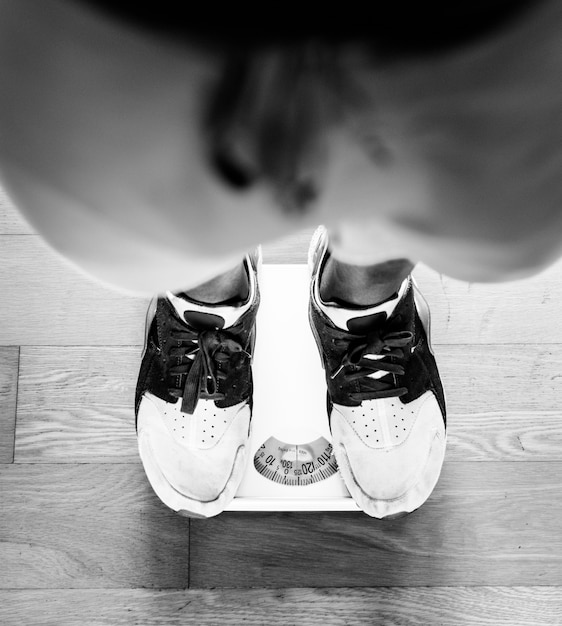
If you want to lose weight, you might think the best way is to count calories and eat less, right? Not so fast, says Terry Fairclough, a personal trainer and co-founder of Your Body Programme.
As a personal trainer, I’ve heard all kinds of opinions about the best diet for weight loss. Should we count calories? How many should we eat? Should we go low fat, low carb, or high protein? Should we fast? Or eat three small, regular meals each day?
While these methods can be useful depending on body types, goals, and activity levels, one thing no one should do is seriously under-eat. We’ve all seen someone start to count calories and drastically cut their intake thinking it will get them that beach body. Sure, they might lose weight, but that’s not the best outcome.
A calorie deficit can lead to weight loss, but not necessarily fat loss, which is what most people aim for. The Western diet is generally bigger than needed, so some might need a slight calorie deficit, but more often, excessive eating is the root issue. Many people assume under-eating is the only way to lose weight, but that’s simply not true.
When we eat, our body breaks down carbs into glucose, which fuels our cells. Any glucose not used immediately gets stored as glycogen in the muscles and liver, along with some water. When cutting calories, what you’re losing first is stored glycogen and water—not fat. Although many of us want to lose fat, a long-term calorie deficit can make our body hold onto fat and break down protein instead.
Protein is biologically active, so the more we have, the more fat we burn to fuel muscles even at rest. That’s why it’s important to eat enough calories, including fats, carbs, and protein. For those thinking they need to avoid fats to lose fat, here’s some news: Fat is a crucial and long-lasting energy source, providing more than twice the potential energy as carbs or protein. Fat stored in muscle fibers can be accessed during exercise, unlike limited glycogen stores. We need fat to exercise and get in shape effectively.
Cutting calories and limiting nutrients can lead to deficiencies, impacting every system in the body, especially the immune, liver, and digestive systems, potentially cascading into health problems and slowing metabolism.
Health issues from under-eating include fatigue, malnutrition, osteoporosis, anemia, polycystic ovary syndrome, depression, hormone-related conditions, and fertility issues. Extreme calorie deficits also stress the body, raising cortisol levels. Increased cortisol can initially cause weight loss but chronic stress leads the body to panic, holding onto fat and breaking down protein.
Three things happen when this breakdown occurs, leading to fat gain: protein breakdown slows metabolism, high cortisol levels increase fat receptors around cells (especially belly fat), and cortisol blocks vital thyroid hormones affecting metabolism.
Furthermore, stress reduces digestive function as energy diverts to muscles during stressful times, affecting nutrient absorption, training effectiveness, and overall health. Poor sleep from low blood sugar triggers adrenaline release, awakening you and impacting detoxification, immunity, exercise, productivity, and weight management.
Bodybuilding competitors often cycle their calories to get lean, increasing them post-competition, but incorrect approaches can make them ill. Constantly cutting calories can hinder metabolic function, making weight loss seem impossible as the body enters ‘famine mode’ and stores fat.
The bottom line: Eat the right number of calories, carbs, fats, and protein suitable for your body type, goals, activity level, etc. Your Body Programme (YBP) can help determine your specific needs through its calculator.
Remember, you only have one body, so nourish it well to keep your metabolism in top shape. My program, which doesn’t restrict calories, has shown that increasing calorie intake can actually help lose fat.
Ensure you eat plenty of lean proteins like beef, chicken, eggs, and fish, or plant-based options like pulses, legumes, tofu, and tempeh. Include healthy carbs from fruits, vegetables, sweet potatoes, quinoa, brown rice, and wholewheat pasta along with healthy fats like avocados, nuts, seeds, olives, and olive oil.
Terry Fairclough, co-founder of Your Body Programme, is a Personal Trainer and Nutritional Therapist. When he’s not writing notes on his hand, he’s lifting weights, working hard for his fitness goals.